 With dropping temperatures comes some important changes in how you raise and take care of your composting worms. Winter can be a challenging time of year for the vermicomposter, and having a few strategies in place before the freezing temperatures arrive will save you some hassle.
With dropping temperatures comes some important changes in how you raise and take care of your composting worms. Winter can be a challenging time of year for the vermicomposter, and having a few strategies in place before the freezing temperatures arrive will save you some hassle.
I have two strategies for you, and it’s a guaranteed “one-two” knock out punch on old Jack Frost.
General Advice For Winter
Keep Them Warm
Worms are kind of like people in that they like to stay comfortable. This means that they need to be brought in from outside so that they can enjoy the warmer temperatures indoors. This not only keeps them alive, but helps them thrive in an ideal environment.
Worms are most productive between 55-77’F. Garages, basements, heated storage sheds, shops, cellars and even your own kitchen are perfectly acceptable places to raise or maintain a worm farm during the Winter.
If worms get too cold, they may try to escape and wind up dead on the floor. This only leaves you with a mess to clean up and starting back from scratch. Not to mention it will stink up your place. One thing you can do to prevent worms from getting too cold is putting a heat light above the vermicomposting system. These lights are easy to come by and do a fantastic job, especially if you keep your worm system in a barn, shed or cellar.
Another thing to watch out for is oxygen flow. Worms need air, and there are cases when worms get sick because they are smothered by owners adding too much bedding. Keeping them warm is important, but so is ensuring that there is adequate ventilation.
Don’t Over Feed
Worms are less productive when temperatures drop below 55’F, in fact they go dormant. However, don’t assume that they don’t need any food. When temperatures are consistently above 55’F then they need to be eating. Finding a balance amongst Winter chaos is important for the health of your worms, and the success of your vermicomposting system.
Remember never to over feed your worms. Having loads of extra food scraps in your worm bin can attract pests like mice and mites and that’s definitely not something you want to have coming in your house or other enclosed structures.
If you find yourself throwing out more food than your worms will eat, consider creating a compost pile where you can store food scraps until the weather warms up. Otherwise, consider bringing your worm farm indoors where the worms will be more productive and eat more. The systems we sell at Uncle Jim’s Worm Farm, are small enough that they don’t take up a whole lot of space indoors. Believe it or not, it is possible to maintain a neat and odor-free vermiculture system.


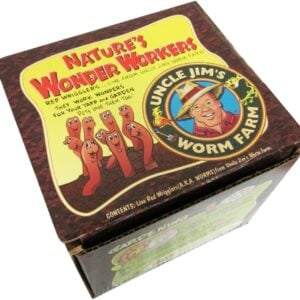
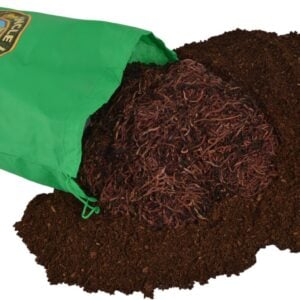
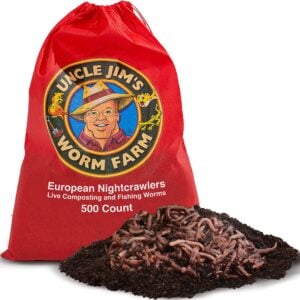
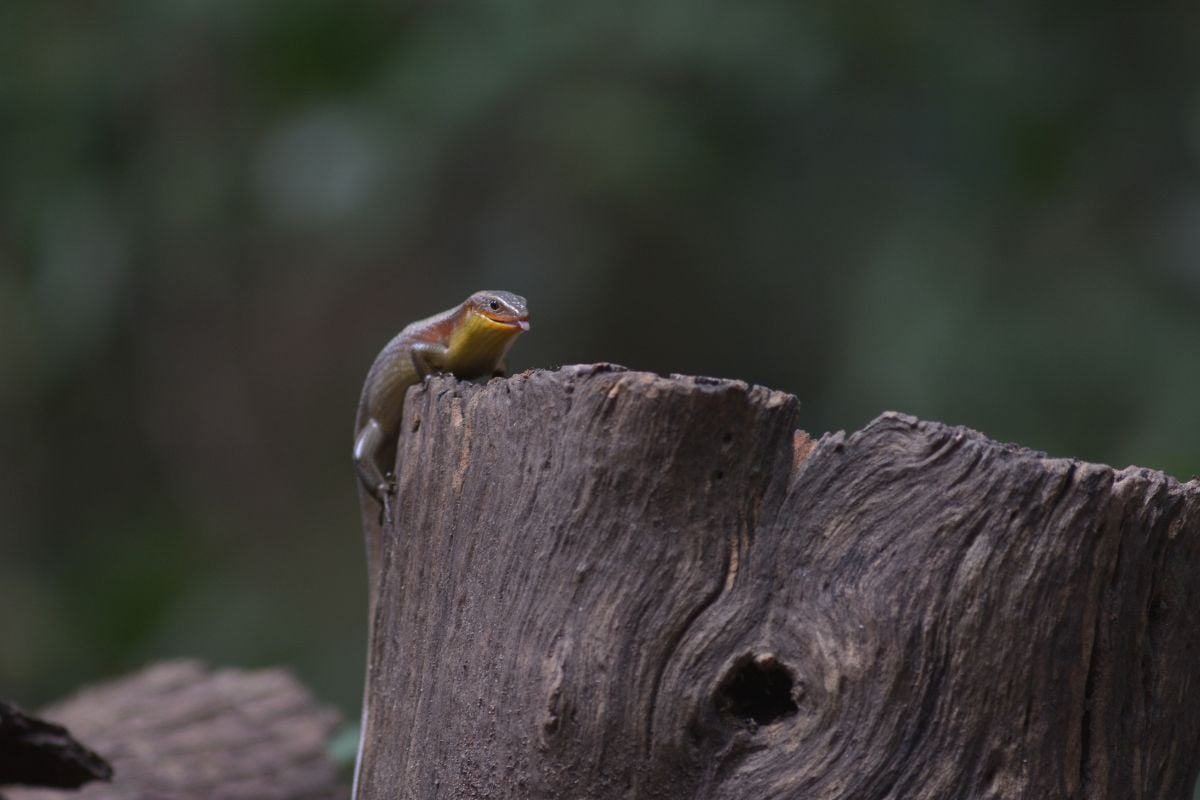
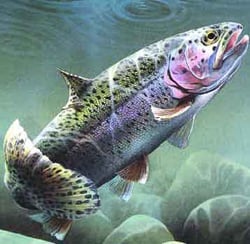

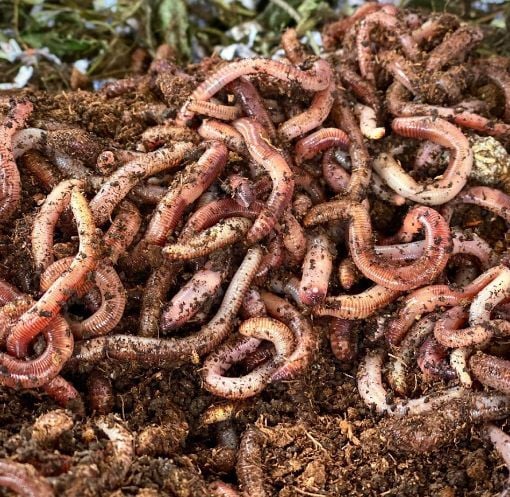
3 thoughts on “Raising Worms During The Winter”
I just started my first worm farm this year. To winterize, I will bring them inside my garage that gets pretty cold sometimes.
Should I use dirt, sand, shredded paper or worm bedding.
The little wigglers multiply quickly. I will separate the pot worm very soon. I thought pot worms (white) were baby red wigglers.
Hello Curtis;
You can use all of the above, make a Mixture if you wish or just Peat moss and paper. All of the materials you listed are good for the worms.
Happy Worming!
Uncle Jim’s
im breeding nigtcrawler worms for my turtle will the make babies in winter?